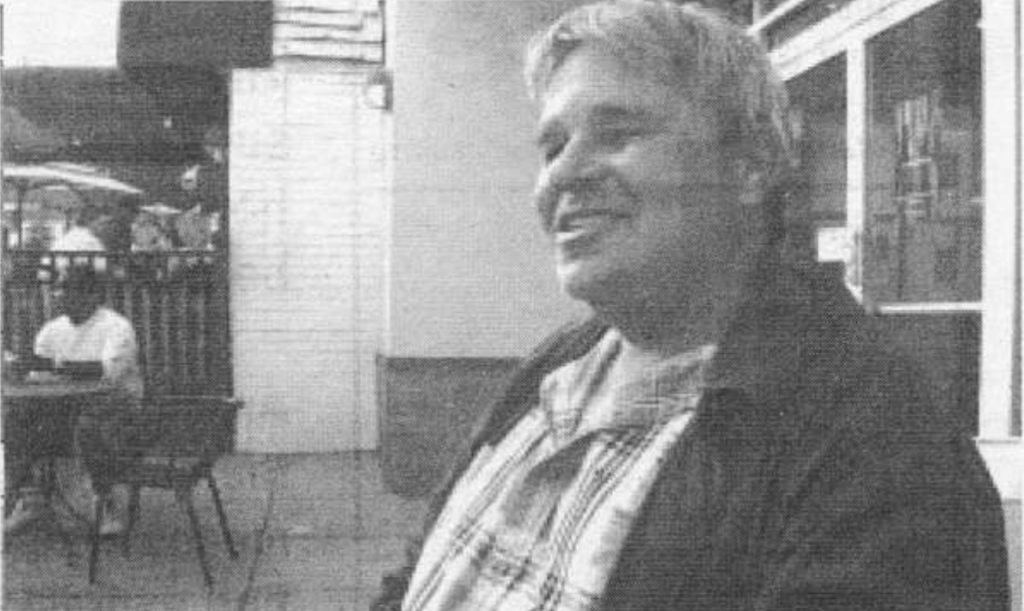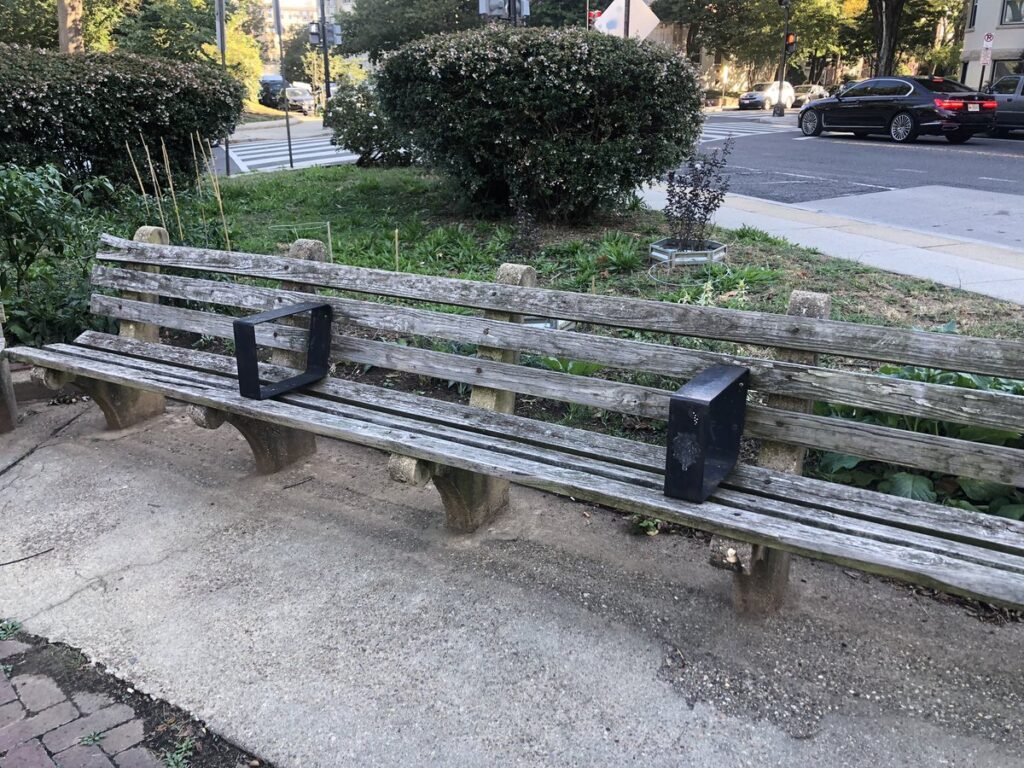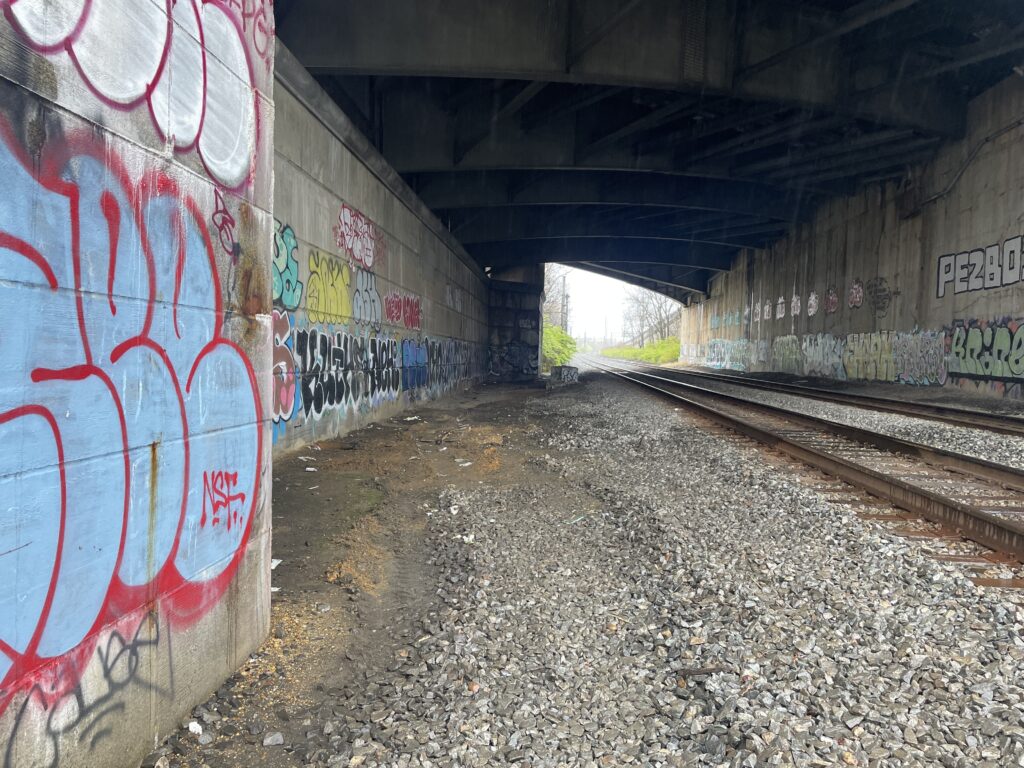George Siletti, 49-years-old with big blue eyes and a wide smile, spent 30 years as a self-proclaimed drifter. But now, “I’ve found my niche in life,” reports George. My goal is to educate people about my story and about homelessness, to make a difference in how people view homelessness and homeless people.”
For 12 years, George has been an active member of the Speakers’ Bureau, part of the National Coalition for the Homeless (NCH). The bureau is a group of homeless and formerly homeless individuals who travel and speak to groups in order to break down myths and stereotypes about homelessness.
George recently returned from New York where he spoke to six classes of high school students about his life and homeless experiences. “Listening to someone speak is different from reading about homelessness in a textbook. I really think this is how we can change people’s perspective, says George.
George began living on the streets at 16, traveling from New York, to Florida, to Texas, to California, working odd jobs and sometimes drinking and using drugs. He also struggled with depression. As he explained it, he couldn’t hold a job or shay in one place for very long.
“I just couldn’t adjust to mainstream society. Homelessness was my lifestyle. I would get frustrated and just take off for the wild blue yonder,” he said.
George has many stories from his years of homelessness. People have beaten him with two-by-fours while he slept and broken bottles over his head. He has also experienced great kindness which helped him maintain hope. A man once picked him up while he was hitchhiking in the Baltimore area and offered him some money to unload his truck. He ended up inviting George to meet his family, then to stay for dinner. George lived with that family for one year and remains in touch with them today.
While in Baltimore in the early 1990s, George found a job that he kept longer than any other, working at a hospital as a life skills manager for people with mental disabilities. “I would show them where the Laundromat was and the bank, help them learn the bus system, go with them to doctor’s appointments so they wouldn’t get scared and just try and keep them comfortable.”
George found housing in Baltimore and stayed there for five years. However, he began to experience the difficulties of low-wage, subcontracted labor. Because he didn’t have his GED or diploma, he could not get pay raises and was not eligible for benefits or paid vacation. He continued to work hard, but “I wasn’t taking care of myself,” Geroge said. “I was taking care of other people’s needs before mine, because that’s the kind of person I am. But I wasn’t taking the time I needed, wasn’t taking my own medication.”
Eventually, George left that job and returned to hitchhiking and homelessness.
Geroge found himself in Washington in the early 1990s, and stayed with a friend, Michael Stoops, the executive Director of NCH. Soon, George found housing and much-needed services through Friendship Place, a homeless welcoming center in Northwest Washington. George became involved in advocacy and outreach work at NCH and Stoops suggested he speak to groups about his experiences with the Speaker’s Bureau.
Soon after, George was able to secure permanent housing in the Ann Frank House with the help of his case manager from Friendship Place. The only requirement was that he continues to do good works such as the advocacy he did as part of the Speakers Bureau and write a column for Street Sense.
George smiles broadly when he talks about his home at the Anne Frank House, an apartment building for mentally ill and formerly homeless adults. It’s outfitted with furniture and appliances that were all donated. “It may not seem like a big deal, but for the first time, I have a mailbox. I started to get junk mail from Ed McMahon, but I didn’t care because not I feel like part of the community. I am no longer a homeless statistic. For the first time, I can see my name in the phone book. It really make me feel like I am part of a group.
In addition to his work with the Speakers’ Bureau, George is on the board of directors at St. Luke’s Shelter and on their planning council. “I am able to give them first-hand information from a homeless perspective that they want for making decisions about the shelter,” says George.
George also advocates strongly for homeless program that combines housing with services, such as case management, job training and placement, and medical attention. In his opinion, a “one-stop shopping center” like Friendship Place is most effective.
Currently, George continues his advocacy work and plan to start contributing again to Street Sense. He hopes to get a computer in the near future. In the meantime, you can probably find him sitting outside of Starbucks in Tenleytown. Say “hi,” and he’ll be glad to talk with you, or you can reach him by e-mail: [email protected].








